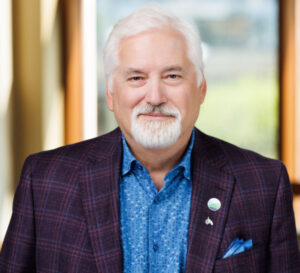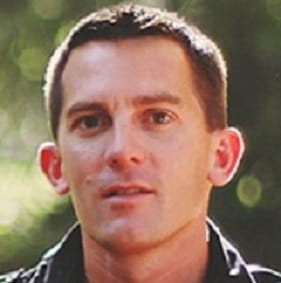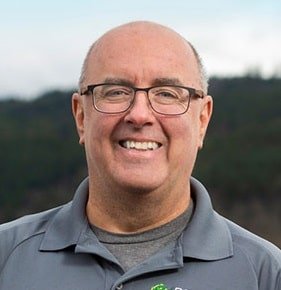Digester Operator School
Complete Course Content
The 14- module course, plus site and laboratory tours, was created by operators for operators. Start with the science of anaerobic digestion, and learn everything you need to optimize digester performance.
ABC’s Operator School has the best instructors in the US biogas industry. With decades of experience, they’ve seen it all already and can help you avoid costly, and sometime smelly, mistakes.
Get Certified
The American Biogas Council’s Operator Certificate is the only such certification for anaerobic digesters in the US. Increase your bottom line by making sure your digester performance is optimized by certified operators.
Upcoming courses
Continuing Education Series
September/ October 2024
Virtual
Join ABC virtually the last week of September through the first week of October for a new program designed as continuing education for Operators. Attend one or both of our sessions focusing on Engine Lubricants and Landfill Operations from Wellfield to Pipeline.
This course is open to everyone, but designed for operators. The event takes place from 1-4pm ET on Thursday, September 26 and from 12-5pm ET on Wednesday, October 2 and Thursday, October 3. All 3 sessions will take place on Zoom.
22 PDH Virtual Digester Operator School
February 1-28, 2025
Virtual
This February, ABC will be holding our only planned virtual ABC Operator School program this year. Designed to help operators optimize their biogas systems and reduce costly mistakes, students will attend seven afternoon sessions throughout the month, covering 9 modules and 22 PDH hours of training from the industry’s most expert operators. You’ll learn the skills you need to excel on the job as a digester operator, including how to repair, maintain, and troubleshoot biogas system components.
ABC’s Operator Training School is required coursework in order to participate in ABC’s Operator Certification Program, which is a form of accreditation for digester operators and the only such certification in the US. This class covers ALL requires modules for certification. As the biogas industry grows, policymakers may soon require anaerobic digesters to be run by certified operators. Keep your operators on the cutting-edge by getting them certified after the course.
More information about February’s training, including registration, will be announced in December.
31 PDH Course
August 2025
Location: Michigan State University, East Lansing, MI
| Module 1 | Module 5 | Module 9 | Site Tour 4 |
| Module 2 | Module 6 | Site Tour 1 | Laboratory Tour |
| Module 3 | Module 7 | Site Tour 2 | |
| Module 4 | Module 8 | Site Tour 3 |
More information for this training, including registration, will be released in 2025.
Modules
The 14 modules in ABC’s Digester Operator School have been designed by operators for operators. They start with the science of anaerobic digestion since those fundamentals are at the core of nearly all trouble shooting an operator needs to do. Our modules are dense with details so you can both optimize the performance of your digesters and avoid costly, and sometimes smelly, mistakes.
Modules 1-9 are required for Operator Certification
Module 1 - Fundamentals of Anaerobic Digestion
This is the foundation for everything operators and anyone in the biogas industry needs to know. As such, almost every course will include and start with this module. We’ll cover the 4 steps of AD including the actual chemistry and biology so you know what to test for; vocabulary and concepts like BOD and VFA/Alk ratios; how to monitor AD performance; and how the primary characteristics of different digesters require a different approach to their operations.
Module 2 - Substrate as Potential Energy
Module 3 - Math for Digesters
This module consistently ranks as the most valuable by our past students. For those of you who haven’t had math in a while, we are providing several video learning opportunities in the weeks leading up to the in-person session. For the in-person we’ll start slowly talking about how to keep track of units when doing your calculations, imperial/metric conversions, how to monitor overloads, converting biogas into energy values, and business considerations like determining the value of heat and electricity compared to renewable natural gas. Finally, we’ll walk you through how to determine whether you should accept a truckload of material that shows up at your door. Will the material make money or will it cost you more to deal with the water because there’s so little biogas potential in its contents?
This is a highly rewarding session and will add considerable depth to the operator’s tool box if the opportunity is taken. A must for passing the certification test.
Module 4 - Mechanical Systems
Although emphasis is often and rightly placed on the biological aspects of digester operation, it is important to remember that an AD system is primarily a MECHANICAL SYSTEM. Understanding how to make sure the mechanical systems are operating optimally is critical. We’ll cover receiving material, conveyance, storage and pre-treatment; then mixing, heating and gas handling; finally, we’ll take you through digestate separation, and handling the separated liquids and solids.
Module 5 - Hydraulics (pumps, mixers, etc.)
Some of our expert operators think we should spend a day and half on hydraulics because as operators, you’re handling hydraulic issues every day. But we’ve condensed the essentials of pumps, mixers, monitoring systems and more into a fraction of that time to raise your knowledge quickly and effectively.
Module 6 - Lab Testing. What does it all mean?
You’ll learn directly from the experts who have experience running a lab to understand how to use lab work to help digester performance and to trouble shoot issues. Plus, we’ll help you learn how to apply the results from the lab tests your order and what it all actually means.
Module 7 - Odor Management/Prevention
Odor management and prevention starts and ends with good digester operations. We’ll show you which operations in particular most relate to odor issues so you know what to focus on first. This module is often interlaced with story time—anecdotes of what went wrong at some digesters and how those issues could have been prevented or management more effectively. If you’d like to dive into this issue more, the ABC has a day long course called “Odor Management at Anaerobic Digestion Facilities” which is available on-demand, anytime online (https://americanbiogascouncil.org/odor-management-at-anaerobic-digestion-facilities/)
Module 8 - Safety
The safety module usually lasts a full day. We’ve offered to past students to try to reduce the time we spend on this important topic, but universally, we’re told, all this time is needed. We’ll cover H2S dangers, lockout/tagout, operating in confined spaces, rescue procedures, hot work, flammable and explosive properties, hazard communications, process safety and security, MSDSes and more.
Module 9 - Gas Utilization
Module 10 - Digestate Management (nutrient recovery, solids separation, certification)
In this module, we want to position you to maximize the revenue you can generate from digestate. We’ll cover the mechanics of different liquid/solid separation systems, nutrient recovery technologies and how to get your digestate certified so your customers know they can trust the safety and agronomic value of the digestate they’re receiving.
Module 11 - Vectors
For anyone handling waste, vectors are a common issue. We’ll cover advice for brids, flies, rodents, varmints, and the control and housekeeping necessary for their prevention.
Module 12 - Regulatory Reporting
This module covers what most digester operators need to disclose regularly to stay in compliance. We’ll also cover the reporting needed to participate in lucrative programs like the federal Renewable Fuel Standard and California’s Low Carbon Fuel Standard.
Module 13 - Career Development
In the biogas industry, the operators that have a reputation for high performing digesters are always in demand. We’ll cover the qualities that digester owners look for from their best compensated operators.
Module 14 - Process flow overview/block diagram for site visits
This module is both an application of the content that you’ve learned in the previous modules and preparation for the tour this afternoon. It’s often loud on site, so we’ll cover some of the technical details when it’s easier to hear to enhance the value of your experience on site.
Module 15 - Elements of Safety at Upgrading Facilities
Instructors

Bernard Sheff
U.S. Renewable Energy Development Capital & ABC Board Chairman

Brian Langolf
University of Wisconsin – Madison & ABC Director

Craig Frear
Regenis & ABC Director

Jessica LeRoy
Tetra Tech

Chris Noah
Regenis

Ben Sheff
Burns & McDonnell
Operator Certification
The American Biogas Council’s Operator Certification is the only digester certification offered in the US. Certified operators have higher performing biogas systems and more often avoid costly and sometimes smelly mistakes. For certification, operators must do three things: complete all 9 required modules in ABC Operator School, have 2,000 hours of operations experience, and pass ABC’s operator exam.
Current ABC Certified Operators
Flavio Ascenco
Reed Baldwin
Ronald Bruzdzinski Jr.
Rhonda Chier-Verhagen
Nicholas Cloyd
Anthony Culver
James Deneys
Barry DeVillers
David Ellis
Carlos Garcia
Mukesh Ghimire
Brennon Harkin
Anshul Jain
Austyn Kallman
Russell Lewis
David Mathe
Tyler Meyers
Brett Peth
John Reid
Jason Schmitt
Payton Shelafoe
Marco Silvas
Mark Simms
James Stigler
Kelly Sutter
Arie Van Hofwegen
Jason Vanlandingham
Greg Walkowiak